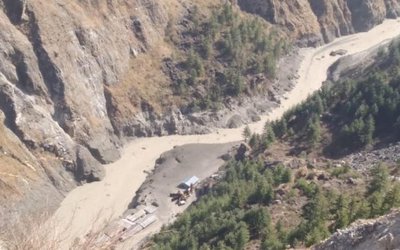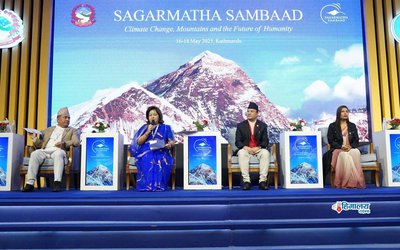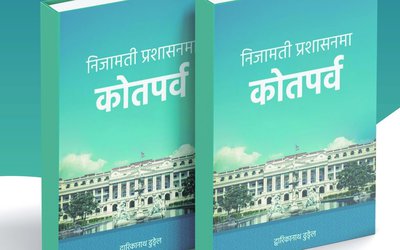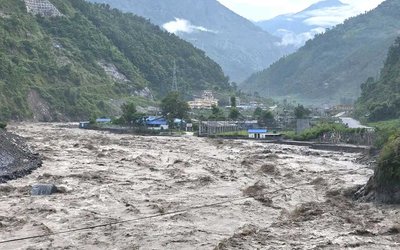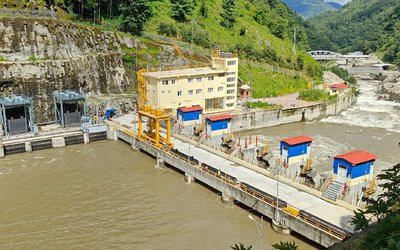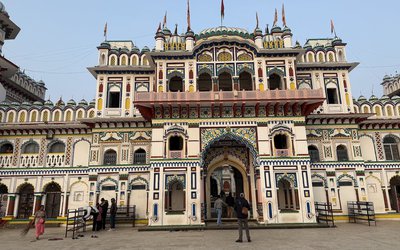Nepal's engagement in the International Conference on Library and Information Science (ICLIS25), hosted by the Sri Lanka Library Association (SLLA) and the University of Peradeniya, was more than just a display of regional collaboration; it served as a valuable educational experience for our library professionals, policymakers, and academic institutions.
The conference was held on the picturesque and intellectually stimulating campus of Peradeniya University in Kandy, bringing together delegates from various parts of South Asia and beyond. Nepal was proudly represented by a delegation of library leaders and scholars who actively contributed to discussions, presentations, and policy dialogues. They highlighted Nepal's initiatives in digital transformation and its efforts in fostering regional partnerships for knowledge advancement.
A Model of Integrated Libraries
A significant takeaway from ICLIS25 was witnessing the effective integration of academic, public, and special libraries in Sri Lanka. In contrast to the often disjointed and underfunded library sector in Nepal, Sri Lanka's libraries operate with clear mandates, consistent funding, and adherence to unified national library policies.
For instance:
- The D.S. Senanayake Memorial Public Library in Kandy serves as a prominent public knowledge center with a robust digital and physical presence.
- The Public Library and Tourist Information Centre in Nuwara Eliya functions as a resource hub for tourists, providing information about the area and related services.
- The Colombo Public Library, one of the oldest and largest in South Asia, offers a range of services from children's sections to digital archives. It also engages in outreach initiatives such as mobile libraries, book box projects for disadvantaged children, and community involvement activities.
- The Main Library at the University of Peradeniya showcases how academic libraries can support cutting-edge research while preserving national literature and scholarly works.
- The National Museum Library plays a crucial role in historical documentation and public education.
These institutions exemplify Sri Lanka's dedication to equitable access, cultural heritage preservation, and continuous learning.
Knowledge Centers Beyond Books
Sri Lanka has established a robust network of knowledge centers that go beyond traditional book storage. These dynamic spaces serve as hubs where research, culture, and innovation converge. The delegation from Nepal was particularly impressed by Sri Lanka's utilization of digitization and cataloging technologies, which enhance public access to resources.
Specialized libraries in Sri Lanka are flourishing as well. For instance:
- Law libraries, government archives, medical libraries, news agency libraries, and corporate knowledge centers are efficiently managed and cater to specific professional communities.
- The National Museum and the Sri DaladaMaligawa (Temple of the Sacred Tooth Relic) in Kandy not only act as cultural heritage sites but also safeguard historical documents and manuscripts. This exemplifies the collaborative preservation efforts between libraries and museums.
A Literacy-Driven Society: Social Investment through Libraries
A notable aspect of the Sri Lankan approach is the funding of public libraries by local and provincial governments as part of their social responsibility. This underscores a strong belief in libraries as instruments for social justice, equality, and civic empowerment.
Sri Lanka is on track to achieve a 92% adult literacy rate by 2025 (World Bank). This figure represents the proportion of individuals aged 15 and above who can read and write a simple statement about their daily life. Such a high literacy rate is a result of effective educational policies, accessible library services, and a culture of reading.
As highlighted in a UNESCO report—Education for All Global Monitoring Report 2006: Literacy for Life—libraries worldwide are committed to providing free and equitable access to information for all. They play a crucial role in fostering literate environments, promoting literacy through diverse reading materials for all age groups and literacy levels, and offering adult and family literacy programs.
Libraries embrace social responsibility by bridging societal, political, and economic divides while reaching out to marginalized communities. They empower individuals through continuous learning, informed citizenship, critical thinking, creativity, and access to opportunities in an ever-evolving world.
The contrast in global priorities is evident in the well-known saying: "Developed countries invest in libraries, while autocratic countries construct more prisons." This underscores the difference in values—between education and oppression, and between opportunity and control. Developed nations see libraries as pillars of hope and opportunity. Genuine development is reflected in daily behaviors and attitudes shaped by educational environments:
- Respect for pedestrian rights at crosswalks
- Maintenance of personal and community hygiene
- Green initiatives and environmental consciousness
- Good study habits and academic discipline
- Civic engagement and community involvement
These behaviors are not coincidental; they are cultivated in societies where libraries, schools, and communities collaborate to nurture well-informed, accountable citizens.
Financial and Policy Strengths
Sri Lanka also serves as a role model in terms of financial strategies for sustaining libraries. Through government backing, donor support, and partnerships, libraries in Sri Lanka have the resources and personnel needed for modern service provision. Their approaches to certifying librarians, promoting continuous professional development, and integrating library science into national education policies offer valuable insights for Nepal.
This framework is a valuable reference as Nepal works towards establishing the Nepal National Digital Library and standardizing library services nationwide. By drawing lessons from Sri Lanka, we can strive for coherent policies, professional recognition, and technology integration in our own educational institutions.
Towards Regional Solidarity: REFSALA
ICLIS25 also provided a platform for launching broader regional initiatives. Nepal's presentation on the establishment of the Regional Federation of South Asian Library Associations (REFSALA) was well-received. This emerging federation aims to foster cross-border cooperation, shared learning, and collective advocacy for the library and information science profession across South Asia.
Conclusion
ICLIS25 highlighted the importance of libraries as dynamic institutions crucial for national development, civic life, and cultural identity. As Nepal transitions into a digital era, it is essential to adopt best practices from countries like Sri Lanka to improve our library ecosystem.
Our participation in ICLIS25 inspires us to focus on:
- Enhancing public and academic libraries
- Establishing digitally connected knowledge centers
- Advocating for professional standards and sustainable funding
- Ensuring equitable access to information for all individuals
Remember, access to knowledge is a fundamental right, not a privilege.
Building a knowledge-based society requires vision, collaboration, and a dedication to excellence in library development.
Pushparaj Subedi, President, Nepal Library Association. (Acknowledging Nepal's active involvement at ICLIS25 and the ongoing partnership with regional library associations in South Asia.)

